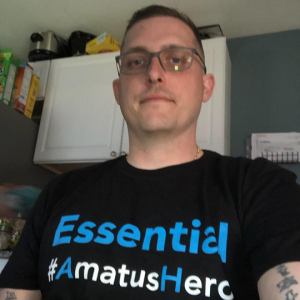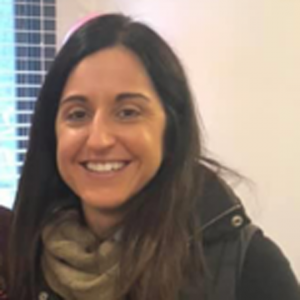As any person with an addiction will tell you, staying clean and sober is difficult even in the best of times.
During times of stress such as the COVID-19 pandemic, maintaining sobriety is especially challenging.
“It’s a really hard time to be newly clean and sober,” says Rachel Markus, a clinical social worker in private practice in Pikesville and former clinical director of the Woodlawn-based Foundations Recovery Center. “One of the foundations of the 12 Steps [recovery program] is forming connections and a support system with meetings and networking. [During the pandemic] there are Zoom meetings every hour of the day, which is great, but it’s harder to get a sponsor now and being in treatment is harder because it’s all tele-therapy.”

Tyler Stewart, a recovering addict employed at Foundations Recovery, agrees that tele-therapy and Zoom meetings, while useful and necessary, cannot take the place of face-to-face interaction.
“Being isolated and having no human interaction is really difficult,” says Stewart. “You can really feel the love in the [12 Steps meeting] rooms, the warm hugs from someone you haven’t seen in a while. … Zoom meetings are great, but they’re not really the same.”
While isolation is a trigger for many people in recovery, living in close quarters with friends and relatives can also be stressful.
“I’ve heard about domestic violence and child abuse happening,” says Stewart. “There’s just no outlet of daily routines. I still go into work and interact with people in recovery and other staff. Not everyone has that.”
Those with addiction are “especially vulnerable to stress and dealing with difficult situations,” says Markus.
“The stress of job loss and financial insecurity puts more of a strain on people new to recovery. Hopefully, their priority is staying clean, but we all have to eat. I’ve seen a lot of people in my own network relapse, and I’ve seen a few [overdoses],” says Markus.
Stewart has also seen people relapse because of the strain of the pandemic.
“A guy in my [community living program] celebrated two years clean, just three weeks before [the pandemic] started and then he relapsed,” Stewart said. “He said, ‘I lost my job, I felt worthless and I just said [screw] it.’ There’s the fear of the unknown, too. How am I going to pay my mortgage? These stressors all add up. It’s sad to see people wondering how they’re going to make ends meet.”
For those who’ve been furloughed or laid off, financial pressures are just one aspect of the problem.

“People in recovery really struggle with idle time and boredom. A lack of responsibility is a trigger,” says Markus.
At Foundations, Stewart says he’s “had to think outside of the box” to find activities for the addicts in the community living program.
“We bought an Xbox, footballs so people can play catch, chess, board games,” Stewart says. “Every day, we’re learning how to keep people occupied.”
Stewart fears that people who are not in addiction treatment or who relapse during the pandemic may put themselves at risk for contracting the coronavirus.
“You’re dealing with people at the lowest of lows,” says Stewart. “They don’t care about hygiene or hand-washing. They’ll put themselves in any kind of risk. They only care about getting high. That was me when I was using.”
While the coronavirus has closed many doctors’ offices and elective procedures have been postponed, Markus encourages people to reach out for help and to seek addiction treatment during this time.
“A lot of treatment centers and hospitals are still open for business and they’re all taking health precautions,” Markus says.
In addition, Markus recommends visiting the Alcohol Anonymous and Narcotics Anonymous websites to find Zoom and phone meetings, recovery literature and more.
Adds Stewart: “You have to stay in contact with your sponsor, and you have to talk about [cravings to use and difficult emotions]. You have to stay balanced, refill your cup.”
To find help for an addiction visit:
SAMHSA (Substance Abuse and Mental Health Administration) at samhsa.gov
National Institute on Drug Abuse at drugabuse.gov
Narcotics Anonymous at na.org
Alcoholics Anonymous at aa.org





